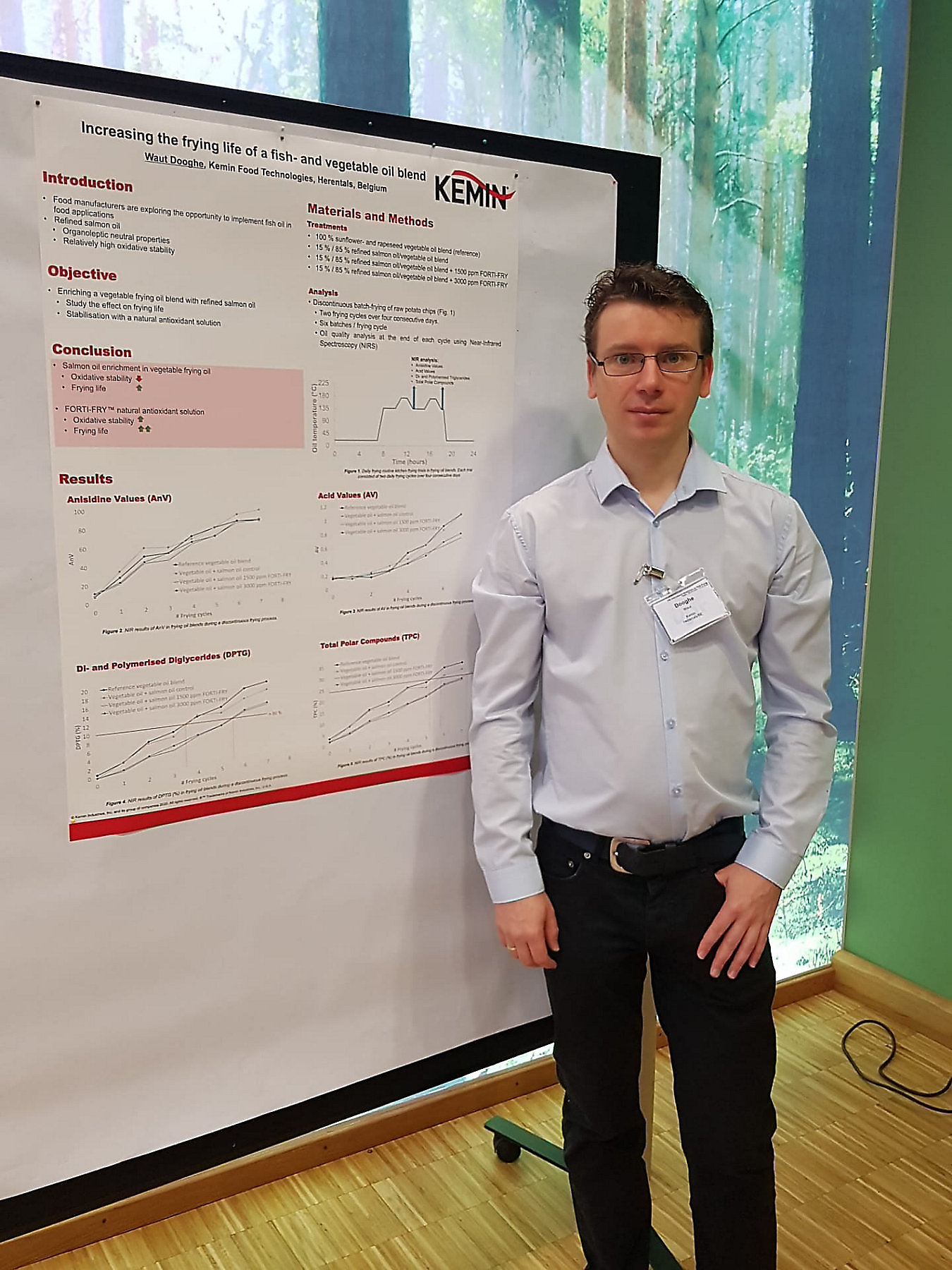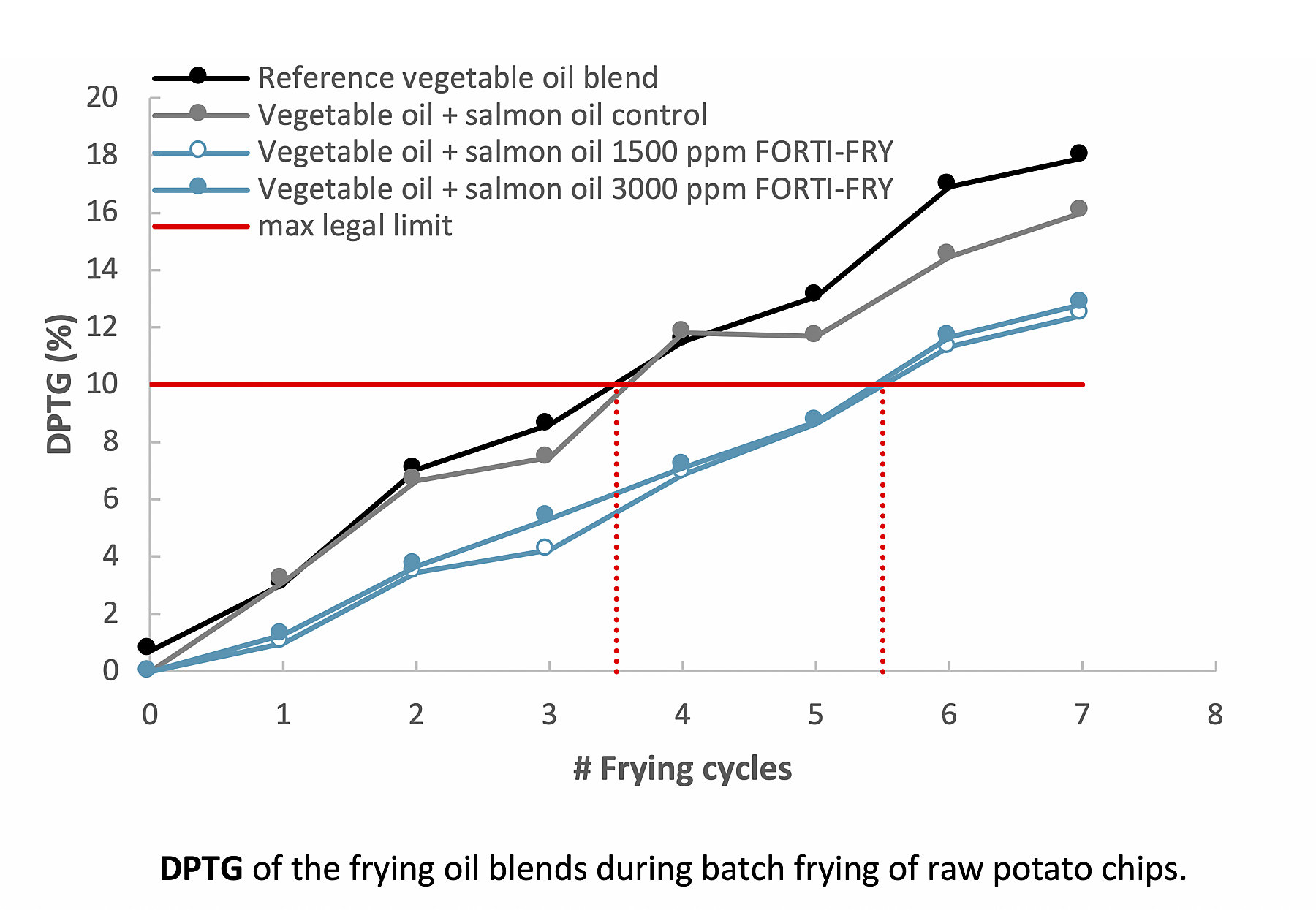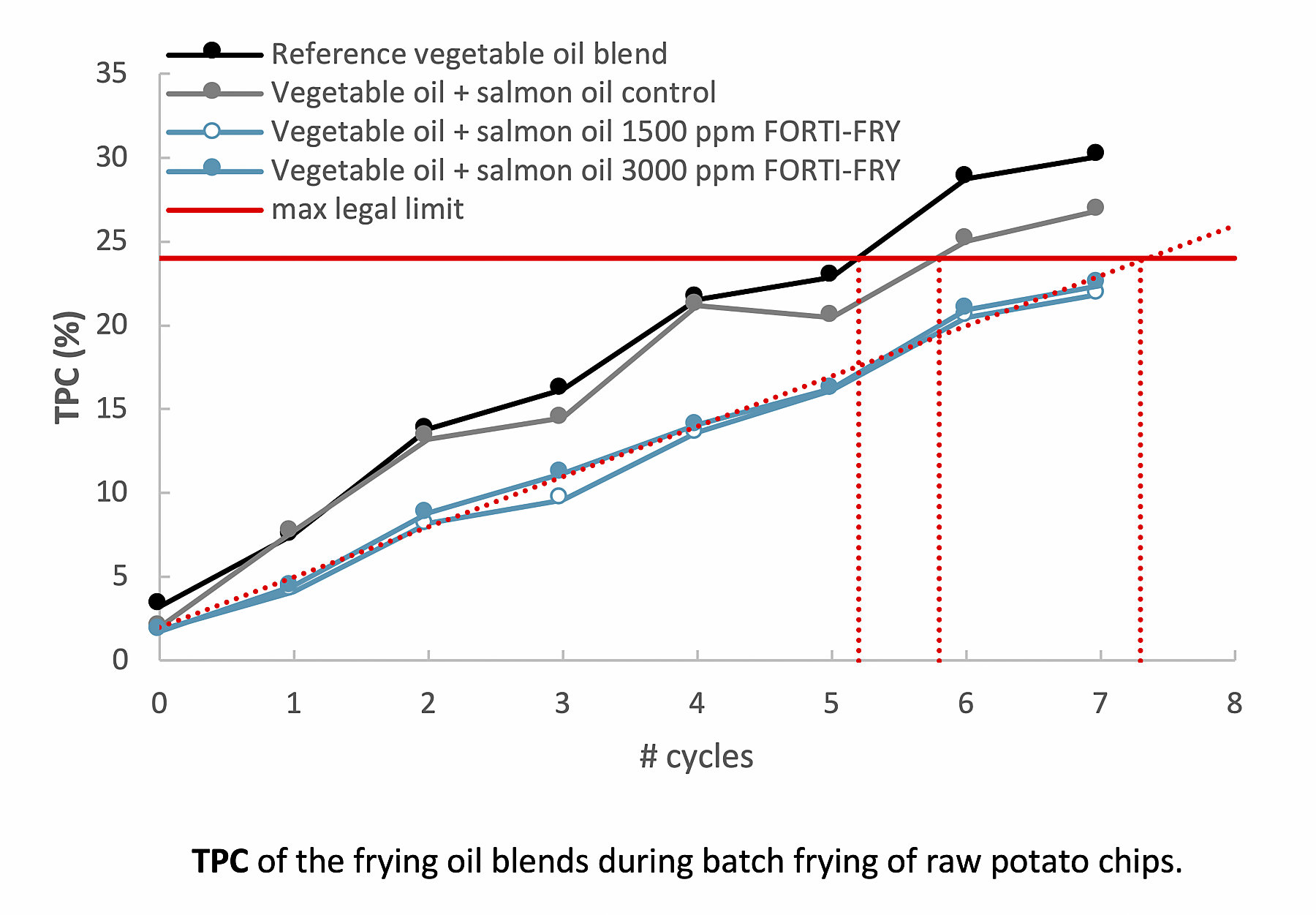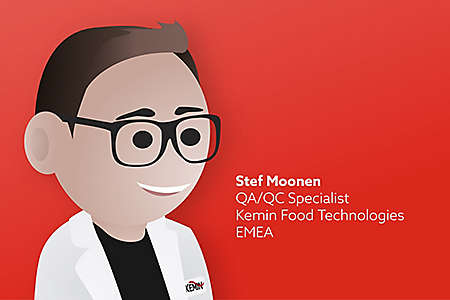Despite the trend towards low-fat food, fried products remain popular. On the other hand, consumers are better educated and want healthy and environmentally friendly ingredients. Retailers are therefore looking at their suppliers to make sure they can meet the requirements of their customers. At the 10th International Symposium on Deep-Frying in Hagen, Germany, the brightest minds in the field gather to discuss the latest findings in the frying market. Waut Dooghe -Kemin’s Sr. Research Associate for 17 years and oils & frying expert- presented a poster featuring his studies on how to increase the frying life of a fish oil and vegetable oil blend for use in a potato chips frying process.
The Challenge
Introduction
Deep frying has been known since ancient history and brings about an attractive change of flavour, texture and colour in the food. However, deep frying also leads to undesired chemical and physical changes that affect both the quality of the deep-frying medium and the fried food. For us at Kemin, an opportunity to increase the frying life of oil.
The Symposium
10th Edition Brings Frying Home Again
The International Symposium was up to its 10th edition, the first time organised by the German Society for Fat Science in 1973. Ever since, these programs have been held in Europe, Asia and USA. The first symposia focused on analytical methods and chemical criteria (free fatty acids, petrol ether insoluble oxidised compounds, smoke point) for the evaluation of used frying oil quality were discussed and finally proposed with the aim to improve the quality of fried products. And for 2020, frying is coming home again, as the event is back in Germany.
The technical program of this year’s edition will cover all the aspects required to get a better insight into the frying process, the analytical and sensory methods and the evaluation regarding safety and quality of the final product. Among the attendees; all persons from industrial food producers, foodservice and restaurant operations, sciences, official and commercial laboratories, marketing and consumers and suppliers who are involved into the production of fried food, research on the frying process or the assessment of used frying oils or interested in deep-fat frying in general.
Kemin will serve as the event’s Silver Sponsor, to underline our interest, dedication and past work in the field of frying, fats and oils and to support the continued progress made by researchers everywhere. On top of that, we are always looking for label-friendly and natural oil protection solutions. As an innovative company it is quite the honour for us to present a poster on the Symposium.

The Objective
Protection of frying oils in a natural way
“Synthetic antioxidants such as Tertiary Butylhydroquinone (TBHQ) can be used to extend the shelf life of frying oils but are less effective at deep frying conditions. Furthermore, there is a clear trend towards natural solutions. With this trend in mind, Kemin developed FORTI-FRY™ Liquid, a natural antioxidant consisting of tocopherol rich extract, specialty oils and an innovative emulsifier system to protect the frying life of oil”, said Waut Dooghe.
As the health reputation of poly-unsaturated fats has grown, food manufacturers are exploring the opportunity to use fish oil for frying purposes. Unfortunately, the many poly-unsaturated fats in fish oil are highly sensitive to oxidation. The use of an antioxidant can offer a solution.
To prolong the frying life of a frying blend of vegetable oils and salmon oil, the natural antioxidant FORTI-FRY was tested at 0.15 % and 0.30 % dosage rates. The frying life of the treated salmon- and vegetable oil blends was compared an untreated reference, and with the pure reference vegetable oil blend.
Deep frying trials consisted of two frying cycles of four consecutive hours per day. Each frying cycle involved three hours pre-heating at 140°C (to promote oxidation reactions), followed by frying for one hour at 180°C (to promote polymerisation reactions). During each cycle, eight batches of raw, sliced potato chips were fried for three minutes at 180°C. At the end of each cycle, oil samples were taken for analysis of Dimerised and Polymerised Triglycerides (% DPTG) and Total Polar Compounds (% TPC) using using Near Infrared Spectroscopy (NIRS). Each fryer was topped up with fresh oil from each respective treatment to compensate oil loss during frying.
Maximum legal limits for DPTG are country dependent and range between 10 and 16 %. For TPC legal limits range between 24 and 27 %.
The Results
Although addition of salmon oil appeared to have an impact with regards to formation of Di-and Polymerised Triglycerides (DPTG) during the deep-frying process, it could not affect the frying life of the frying oil blend. However, when the salmon oil was treated with 0.15 % or 0.3 % of FORTI-FRY, the frying life could be increased with more than 50 %.

Similar with DPTG, inclusion of salmon oil in the reference oil was slightly beneficial in delaying the formation of TPC. Furthermore, a stabilising effect could be seen when the salmon oil was treated with FORTI-FRY, resulting in a frying life that was approximately 40 % higher compared with the untreated reference vegetable oil blend.

Conclusion
Kemin’s FORTI-FRY significantly prolongs the frying life of the oil by preventing undesirable off-flavours and decreasing foaming. The emulsifiers also support a sufficient heat transfer manifested in even browning of the food. The optimal dosage in the vegetable oil and fish oil blend is 0.15 %.
Learn more about FORTI-FRY™

At your service during Covid-19 - a vlog from our team

Introducing Derya Yilmaz - R&D assistant at Kemin Food Technologies

Employee in the spotlight: Beate Boisten

Employee in the spotlight: Stef Moonen, QA/QC Specialist
Browse Latest Articles by Topic
- Food Myths
- At your service during Covid-19 - a vlog from our team
- Employee in the spotlight: Beate Boisten
- Employee in the spotlight: Stef Moonen, QA/QC Specialist
- Employee in the spotlight: Cem Dik
- Employee in the spotlight: Kelly De Vadder
- Employee in the spotlight: Michael van Iersel
- Employee in the spotlight: Waut Dooghe, Senior Research Associate
- Employee in the spotlight: Luca Barbieri
- Employee Michael Kuch

